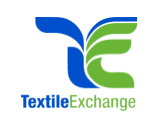 CLOTHING brands have told global sustainability assessment company Textile Exchange they would not use its Responsible Wool Standard if mulesing was allowed.
CLOTHING brands have told global sustainability assessment company Textile Exchange they would not use its Responsible Wool Standard if mulesing was allowed.
In its second stakeholder review of the RWS, concluded recently, the brands also told TE the standard cannot succeed without the support of brands driving demand.
In the latest RWS Mulesing Position Paper released to Sheep Central, TE said welfare groups told it the Australian wool industry has had 10 years to eliminate mulesing, and that the industry needs a strong and clear signal that it is not acceptable.
The completed RWS is due for release in the next week and TE is conducting training on the standard with the sourcing offices of a number of global brands in Europe, Asia and Japan.
The RWS consultation on the mulesing question culminated in a panel discussion that was held as an open webinar last month – see the link below or at responsiblewool.org
During the discussion, Textile Exchange had representation from animal welfare groups, brands, a pain relief specialist, a Merino breeder, a prominent wool trader and processor, a veterinarian, a wool supplier and a wool farmer.
“All perspectives were shared and although there were arguments for allowing mulesing with pain relief, the overwhelming message from the brands and animal welfare groups was that the RWS would not be an acceptable sourcing option if Mulesing – under any conditions – is allowed,” the position paper outlined.
The final RWS requirement pertaining to mulesing is:
AW4.15 Mulesing is prohibited. Farms with ceased mulesing status are accepted – NC1
Ceased mulesing production is defined as wool from sheep where the property has ceased mulesing. A mob may contain mulesed sheep; but no lamb born on this property in the last 12 months has been mulesed at the time of certification.
TE position on mulesing
TE accepts the views of the animal welfare groups and brands, but also understands that Mulesing will not be eliminated overnight, and that there may not be enough immediate supply of nonmulesed wool to meet demand.
The Textile Exchange is encouraging brands to:
- Source 100 percent RWS wool when possible.
- Source any non-RWS wool from sheep that are mulesed with pain relief.
- Work with your supply chain to support the transition to non-mulesing through breeding and adjusted management practices.
- Make long term commitments, and pay a fair price for your wool.
- Stay engaged with the RWS International Working Group as we continue to look at the development of new alternatives
Textile Exchange said it will maintain an open discussion on the mulesing topic and the RWS International Working Group will look at emerging technologies, such as liquid nitrogen or advanced pre and post-operative pain relief as they become available for use.
“We may consider them in the next revision of the standard,” the exchange said.
Click here to read the RWS Mulesing Position Paper.
Listen to the May 19, 2016 – RWS Mulesing Panel Discussion (webinar recording)

This article is an absolute load of rubbish, and makes no sense.